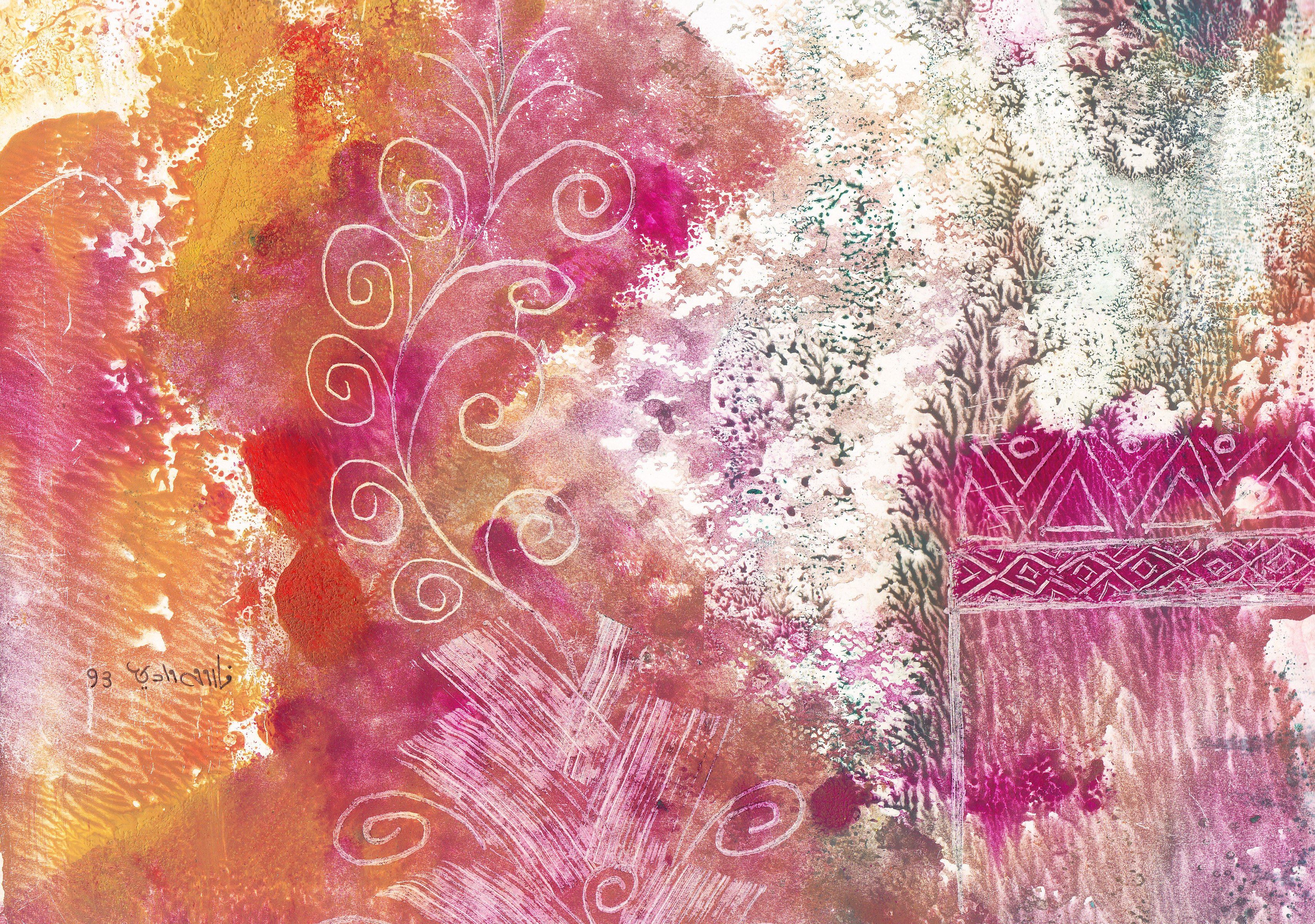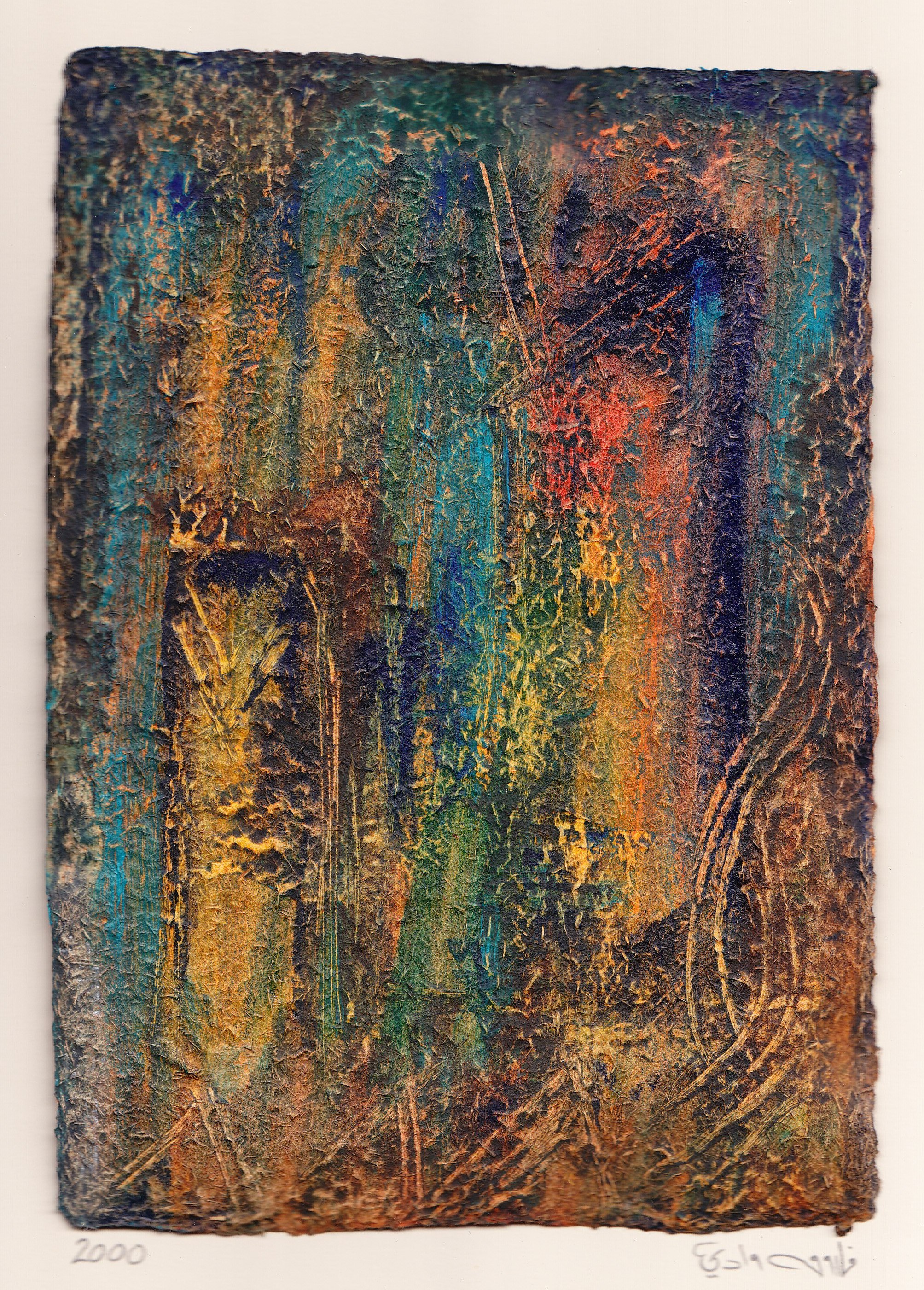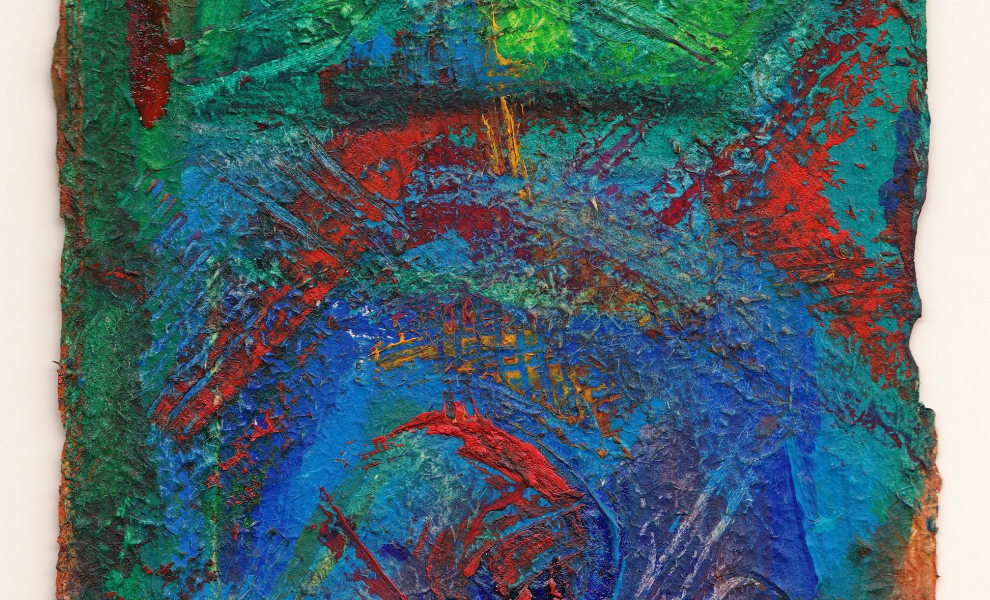Translated by Issa Rajabi
Cover art by the late Farouk Wadi
"If they ask you about the confrontation between poetry and death, look to the grass, and say what does not evade the truth: No poetry defeats death in the hour of encounter, but it defers it..."
— Mahmoud Darwish, In the Presence of Absence.
Here is the poem I never wished to write.
The fear of these words beginning to inhabit me had started, but it intensified and became more pronounced in what we later referred to as “the last period.” In that time complete and articulate sentences about his departure began to appear suddenly in front of me, without me inviting them or even granting them permission. Despite all my attempts to push them away, they overcame me, and occupied my body.
Nevertheless, I worked tirelessly to pursue them relentlessly, maybe because I thought that eliminating these words and their echoes would mean keeping him with us. I wrestled with sleep, preserved in staying wide awake, always carrying an eraser in my hand, capable of breaking down all these sentences and shattering them until they disappear completely. Even defying death from understanding them, transforming the intrusive text upon my being into emptiness.
I no longer possess any phrases, yet… still, I couldn't manage to banish the ghost of departure away from us.
So this poem became the one I don't have the ability to write.
It’s as if all of the words had departed with you. Perhaps no word capable of embroidering this story was ever created within me or in the alleys of the entire universe—the story of how my father became a poem.

Painting by the late Farouk Wadi
My father, Farouk Wadi, was born in exile and died in exile, as if he was saying that he was born a writer and died a writer. From the nib of his pen, his story would burst forth—a narrative that could only fit within the vastness of writing: the tale of the last dewdrop that moistened the womb of a woman before her departure from their village in al-Muzayri'a, before the occupation completely dried up her existence. A woman that handed him over to eternal exile the moment he was born on the 14th of April in 1949, in a tent set-up in the family’s place of refuge in Al-Bireh, Ramallah.
Because his story could only fit within writing, 1967 marked the year of his departure from the place that had become his city, unaware that his journey back would take more than a quarter of a century. And because his story could only fit within writing, the city of Alexandria, where he chose to complete high school away from war, also, without his knowledge, held the dawn of a love story with the woman who became my mother. A story resembling exile, born in us and remaining without end.
Because his story could only fit within writing, in Amman, his fate was determined by a phrase walking side by side with his graduation certificate from university: "We do not recommend hiring the aforementioned," closing the doors and the borders of that city to him.
Because the tale of his love with my mother couldn't fit in the letters scattered between two cities over a decade, it became a story piercing through the sieges of Beirut and the siege of the Palestinian body, planted there without any document; a body that always survived explosions and snipers of the city, of which he loved as if it was his own, yet unable to break free from the imprisonment that distanced him from it in 1983, just a few days before my birth, which was improvised in a different beginning far from that place.
And it only fits within writing... within writing... within writing, his nostalgia for a Palestinian sea and his love for rains that fell on the cities he inhabited, fulfilling through his words the thirst of those he loved and flowing through the essence of anyone who read him as if he were... a Palestinian poem.
It only fits in writing, the story that my father didn’t write about his departure which inevitably had to be as poetic as him. In that moment when his body rested in Portugal, Palestine painted the words of his last novel on its leaves. ‘Saudade - The Abyss of the Gazelle’ (Al-Mutawassit Publications 2022), a book that traverses between Portugal and Palestine, as if it’s the life and death of who wove it.
My father chose "Saudade" - a unique Portuguese word that is challenging to translate, embodying intertwined emotions of longing, nostalgia, pain, sorrow, and memory - as the title for his final novel. It's as if he bestowed this word as an eternal title for our lives after his departure, a life filled entirely with an incurable saudade for him, for his cities, his pen, and everything he left within us.

Painting by the late Farouk Wadi
Through the interweaving of this novel with verses by the Portuguese poet ‘Fernando Pessoa’ and his heteronyms. The Palestinian story is recounted through Poetry. The text transforms without permission into a poem, making the story both Palestinian in its Portuguese essence and Portuguese in its Palestinian essence. It's as if my father was calming the eternal anxiety that inhabits me, seeking a place I could call my own. As if this novel is nothing but an answer to my everlasting question: perhaps it is "The Saudade" , my homeland.
"I want to write." These were my father's last words, as if he was telling us that death had besieged him before his ink ran dry. He clung, even in his final moments, to his weapon and his eternal title: a writer from occupied Palestine, a poem for a free Palestine. My father wrote and wrote. He wrote art, people, struggle, exile, place.. he wrote Palestine. He wrote his story. A decade of weekly articles, dozens of novels and short stories, critical studies, and even children's books. Yet, my father didn't write a single poem. As if he left all of poetry latent until his final text: himself.
I contemplate my father more than a year after his departure, and I feel a pain in my right hand, precisely in that place where my fingers touch the keyboard and in that corner where the pen rests its body on my palm. Much like this space called writing is our eternal embrace. I write because even emptiness is crafted from words. I write to postpone his death even after it has occurred. I write, my father, as if I am saying: I write a poem.



